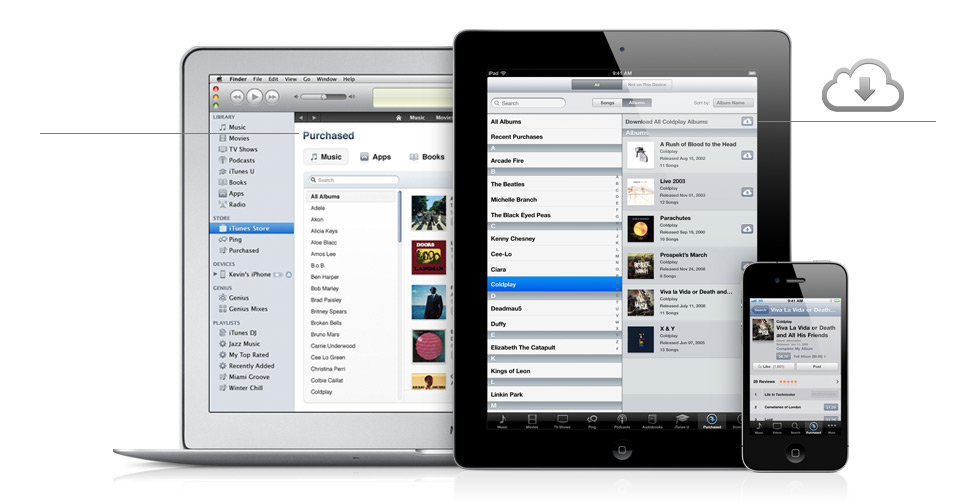WWDC 2011: Apple iCloud will be free, iTunes Match replaces pirated songs

Ever since it was announced last week that Apple CEO Steve Jobs would present iCloudat WWDC 2011, there has been a deluge of rumors and guesses as to what it might be. Now, we have the answers.
Jobs noted at the keynote that the cloud has "demoted" the PC and Mac to just mere devices, and iCloud will step in as the "center of your digital life" and digital hub. Those are some lofty goals, but that is where Apple thinks computing is headed these days.
MobileMe, which Jobs noted was not Apple's "finest hour" (to say the least), is basically being reworked from the ground up and turned into iCloud. Actually, it doesn't really even exist anymore (at least in Jobs' memory).
The idea behind iCloud is simple: iCloud stores content and then pushes it wirelessly to all of a user's devices. That goes for contacts, calendars, new emails, etc. Basically almost everything you sync in iTunes via USB can be done via the cloud now. Users can only backup data using Wi-Fi connections, which might seem limiting but it should save anyone from outrageous data costs.
The big focus on iCloud centered around music. For days, weeks, whatever - everyone has been wondering what Apple was going to announce regarding a cloud-based music streaming service. However, we didn't get what most people expected.
The first surprise was that there will be no charge for multiple downloads to multiple devices. The key word is "multiple," not unlimited. Users can just hit a "Purchased" button in iTunes on their various devices and push what is already purchased and downloaded to nine other iCloud-enabled gadgets.
Secondly, iTunes for iCloud isn't actually a competitor for Google Music, Amazon's music service or anything else like that. There isn't a subscription-based model involved here, but rather the usual purchase model that already exists. The only difference now is that users can just push the songs to multiple devices wirelessly and much easier.
The closest it gets to the streaming service is the new iTunes Match. Users who have pirated MP3s on their computers can try to go back to the honest and good side of things by using this software that scans the hard drive and then matches the titles to 256Kbps AAC, DRM-free tracks. (That must be where Apple's latest deal with the music industry came in.) Jobs promised this scan would take only "minutes" and that it costs $24.99 per year "regardless" of the amount of songs.
Some of the other tidbits included in iCloud include a @me.com account, a no-ads promise, and a new feature in the App Store that shows the user its previous purchases (i.e. mobile apps, iBookstore items, etc.) that are waiting to be pushed down to other devices.
Apple also appears to be targeting a more business-minded bunch with the new Documents in the Cloud function. This feature incorporates the iWork suite (Pages, Numbers, and Keynote) and follows the idea of the cloud: users can work on projects using one of these apps using an iPad and then pick up where one left off using a PC. iCloud will also sync up the Camera library among multiple devices using Photo Stream, which pushes the last 1,000 photos taken on any of the iCloud-enabled devices to the rest. These images will be stored to their own album, but they'll only be kept there for 30 days. If a user wants to keep them, then the selected images must be moved to a different, specified album.
Although it was widely rumored that Apple would charge $25 per year for iCloud usage (versus the $99 MobileMe yearly subscription fee), Jobs said that iCloud will be free. Yes, free - except for that whole iTunes Match fee if you opt into it.
Like iOS 5, the developer preview will be available starting today, and the full version will launch this fall. iCloud will offer 5GB of storage space, but purchased music, e-books and photos don't count towards that total.
Related coverage on ZDNet:
